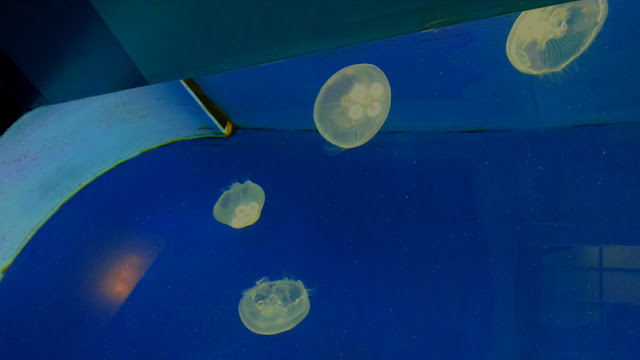Mateo had to learn a few things about what it’s like to be on the road on
this world. Most of it is the same. Cars look about the same as he
remembered, though more advanced. Buttons and levers are in different
places, but that can be true of variable models. While there are a great
deal of driverless vehicles on the road, there are still plenty of
human-driven ones left. If a cop has to pull you over, they would be a
little surprised to learn that you were in control of it yourself, but not
immensely so. There isn’t much that’s going to get Mateo pulled over,
though. Part of what he had to learn was the fact that there is no such
thing as a speed limit. They used to have them, just as they were in the
main sequence, but eventually phased them out once they understood that most
accidents were being caused by distracted driving, and not speeding. In
fact, in many cases, drivers found themselves more focused when traveling at
higher speeds, and more likely to let their eyes wander at slower speeds.
Mateo is allowed to go as fast as he wants. Which just so happens to be
about as fast as Heath’s car can handle. Mapping software accounts for it.
Since he’s only recently set up a new account, and his habits haven’t been
measured yet, he has to tell the system about how fast he’ll go, and it will
use that to calculate travel time. A trip that might take most people an
hour is only half that for him. To his surprise, he finds his destination to
be identical to the way it was back home. He hasn’t been here in a long
time. He hasn’t even seen Topeka. They sort of moved their base of
operations to Kansas City, and started calling that their home, but he’s
feeling nostalgic, and wants to see it all again. He was especially missing
his secret little graveyard.
He didn’t invite anyone to come along with him. Leona, Heath, and Marie are
at work anyway. Ramses has a day off, and wanted to join, but Mateo just
wants to do it solo. There have been other times when he’s gone off alone,
but those have mostly been attempts to protect his family. Today, he only
wants to clear his mind, and not worry about anything for a little while.
The last time he tried that, it didn't work out. It wasn’t a bad thing; it
was the day he met his Aunt Daria, but it did sort of defeat the purpose.
Hopefully he can just sit here now, and remain uninterrupted by drama. He’s
successful for about an hour.
As he’s meditating with his eyes closed, he here’s the crackling of leaves a
few meters away. A fairly old woman steps up to a gravestone, and places a
bouquet of flowers against it. She stares at it reverently, possibly praying
over the body below. But it’s not a body. Mateo can’t remember exactly which
grave that is, but the most recent burial was in 1974. She never could have
met anyone here, or probably even heard stories. If his mental math is even
remotely close to the truth, there’s a dozen and a half generations between
her and the dead person, and that’s assuming she’s mourning the outlier. No
matter what, all that’s left are bones. Most of these people died in the
late 19th century, and early 20th. He decides to leave it alone, and not bug
her, though. After all, that’s why he came here alone. It probably has to do
with her religion. It would not be unreasonable to assume that at least one
faith doesn’t worship a deity, but ancestors instead.
She completes her hushed ritual, and then walks over to him. “Who do you
know here?”
“Nobody,” he answers. “I just like the quiet.”
She’s taken aback by this, but regains her composure. That’s not a crazy
answer.
“Do you know someone here?”
She looks back at the grave out of the corner of her eye, over her shoulder.
“Of course not. He died 480 years ago.”
Now he remembers. Brantley D’Amore; September 4, 1875 to April 29, 1918.
He’s not one for great memory, but he remembers gravestones. “Then why do
you bring him flowers?”
“Everyone deserves to be remembered, even by those who never knew them. I
come on the respective anniversaries of everyone here. The only personal
connection I have is to that one over there.”
“Rossella Crocetti; April 6, 1888 to April 6, 1899.”
“Did you memorize all of their names and dates?” she asks.
“She was a child who died on her birthday. That one’s easy to recall.”
She nods. “Yeah.”
“What’s your name?”
“I’m Ty—” she stammers, like she decides midword that she doesn’t want to
give out her real name, which is fine. “Tallulah. I’m Tallulah.”
He, on the other hand, doesn’t feel compelled to lie. “Mateo,” he says in
kind.
“It’s nice to meet you. I’ll let you get back to your meditation.” She turns
to leave.
“Wait.” He has a dumb idea. “Quincy Halifax.”
“Is that a band, errr...?”
He studies her face to see if he can detect a reaction. She does react. She
recognizes the name, but she doesn’t want to talk about it, so he decides
not to press it. “He’s just another guy I’ve met in this graveyard. I
thought you might have encountered him too.”
“Can’t say I’ve had the pleasure.”
“Right. Bye, Tallulah.”
“Bye, Mr. Matic.” Wow, she’s not very good at this. He never told her his
last name. Before realizing this, Mateo turns his head away, and by the time
he turns it back, she’s gone. But he’ll see her again. All he needs to do is
write down the death anniversary of everyone here.



















